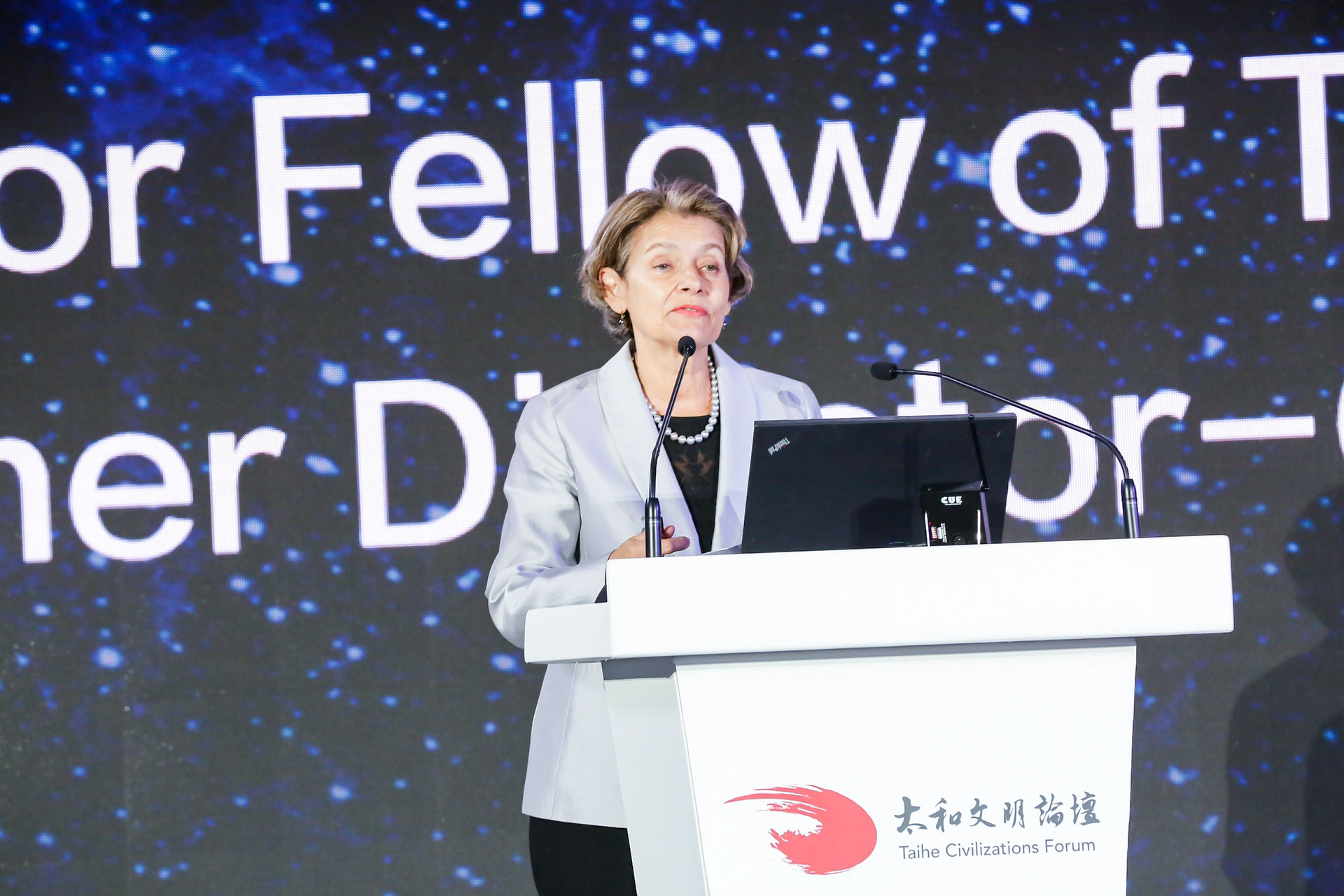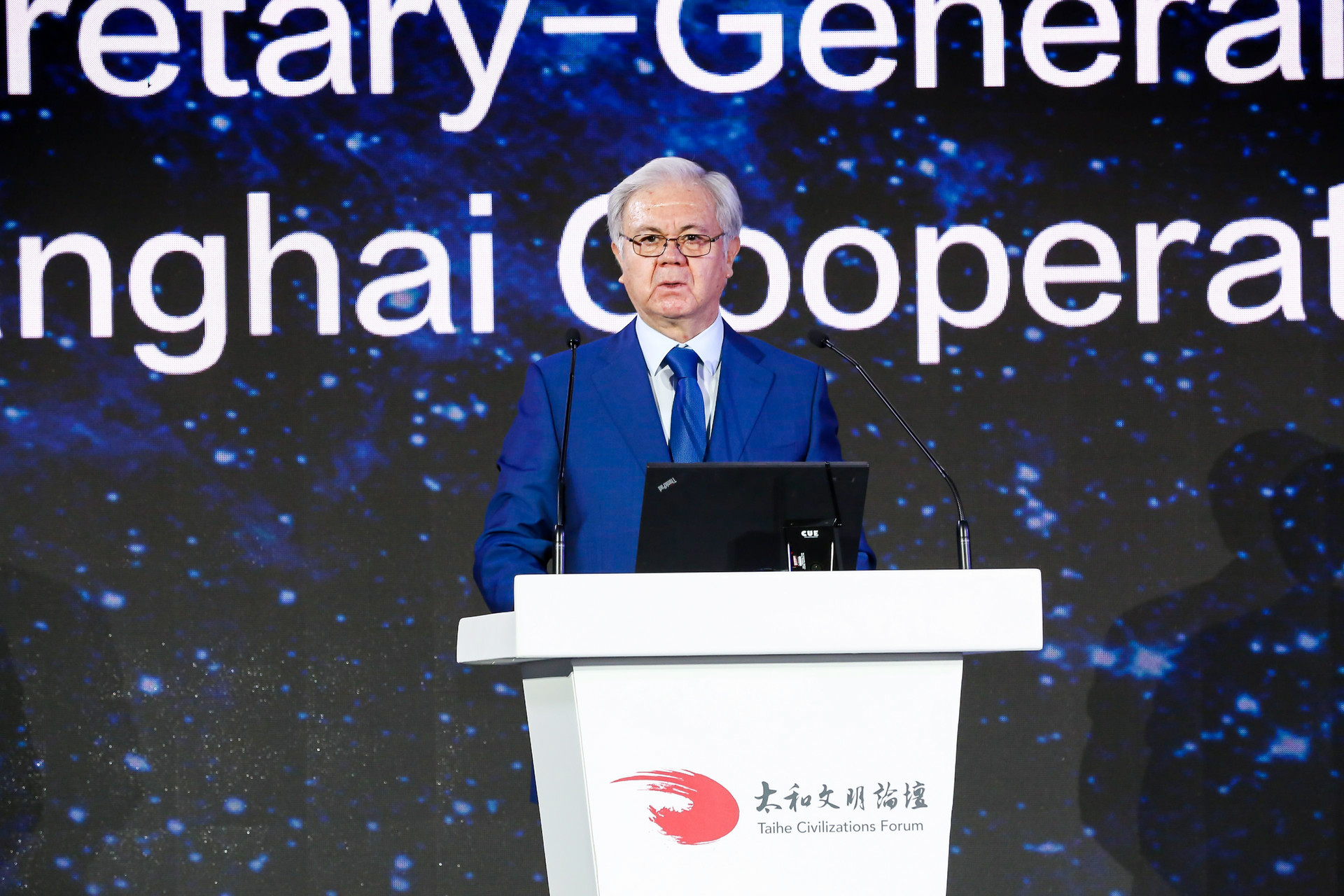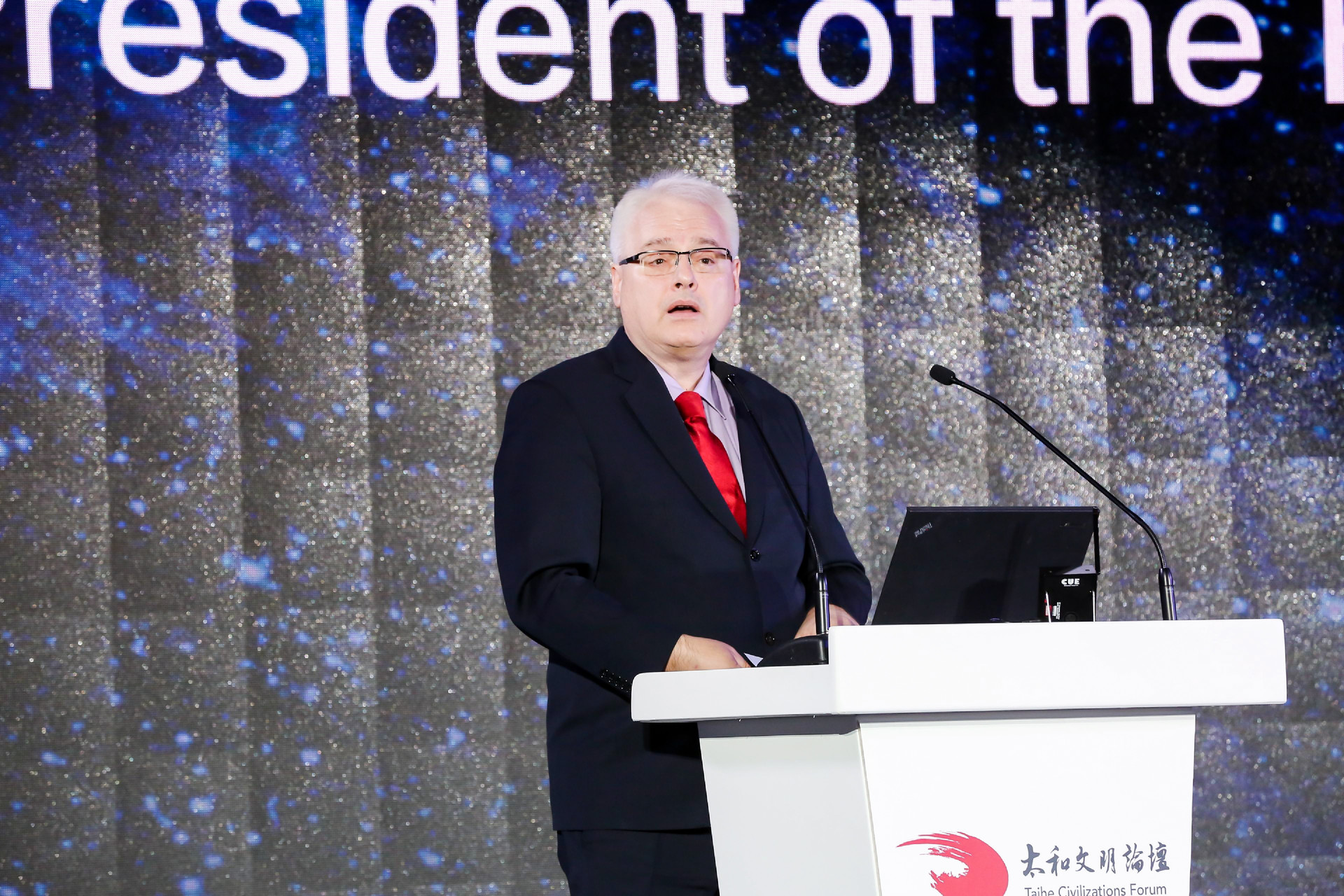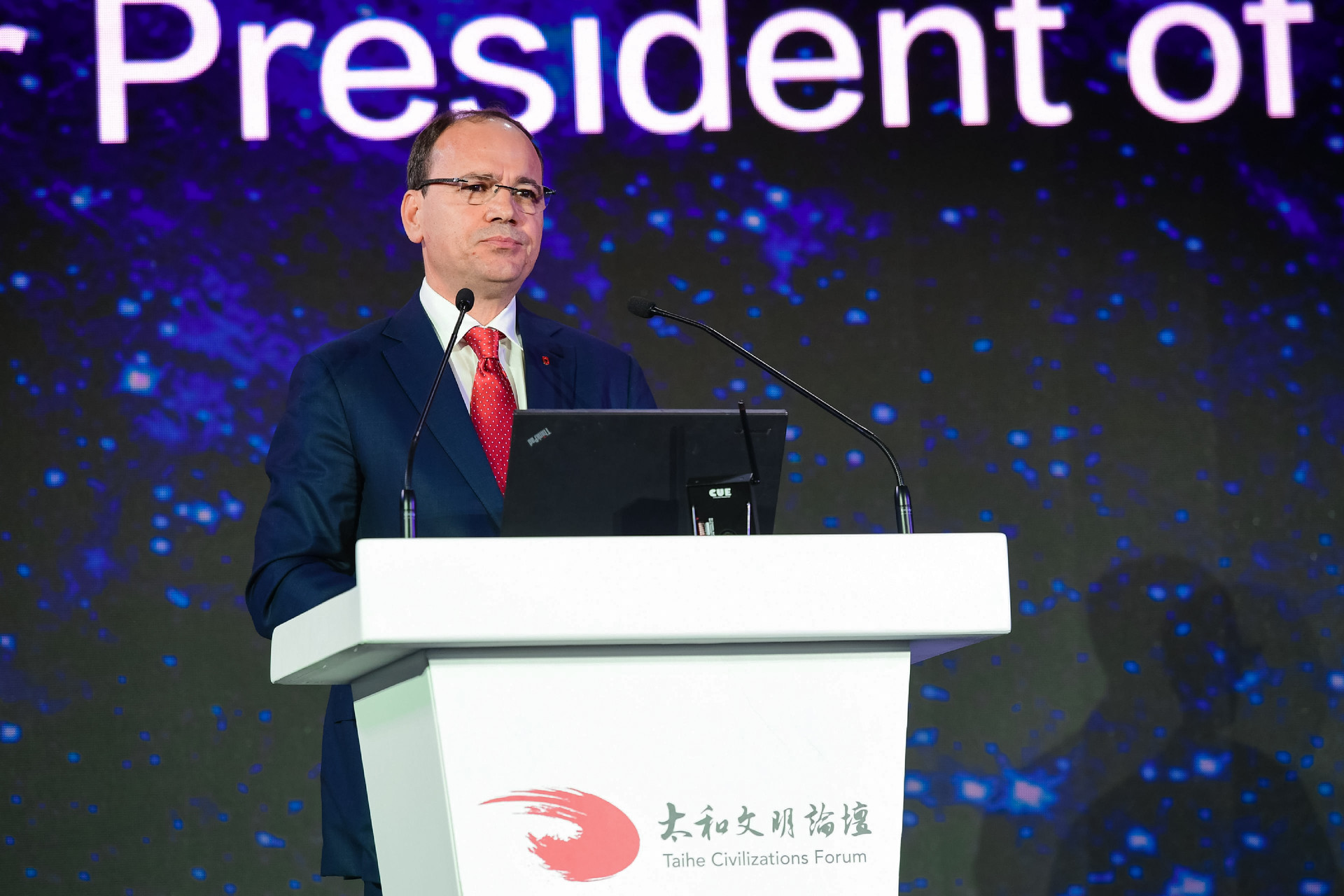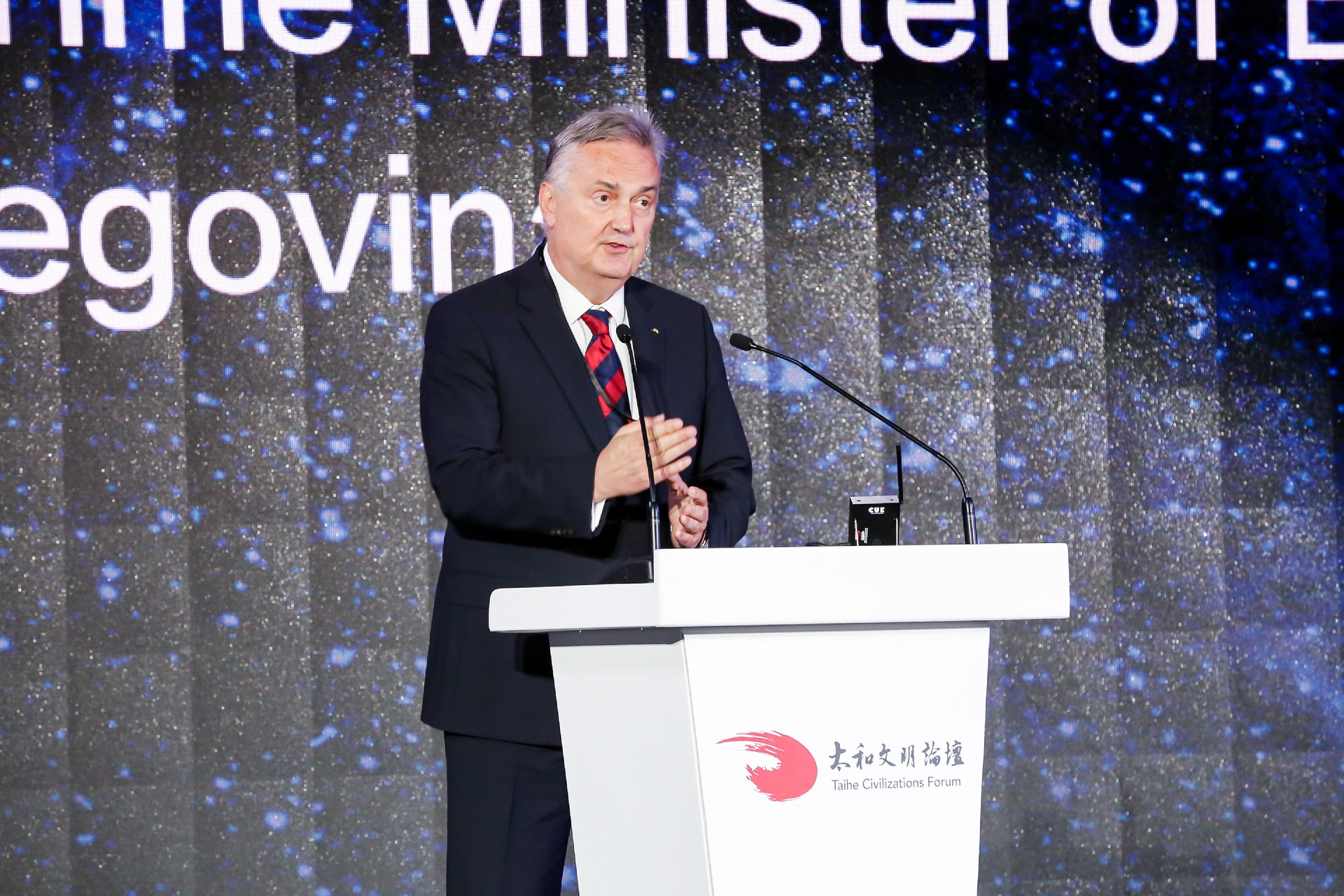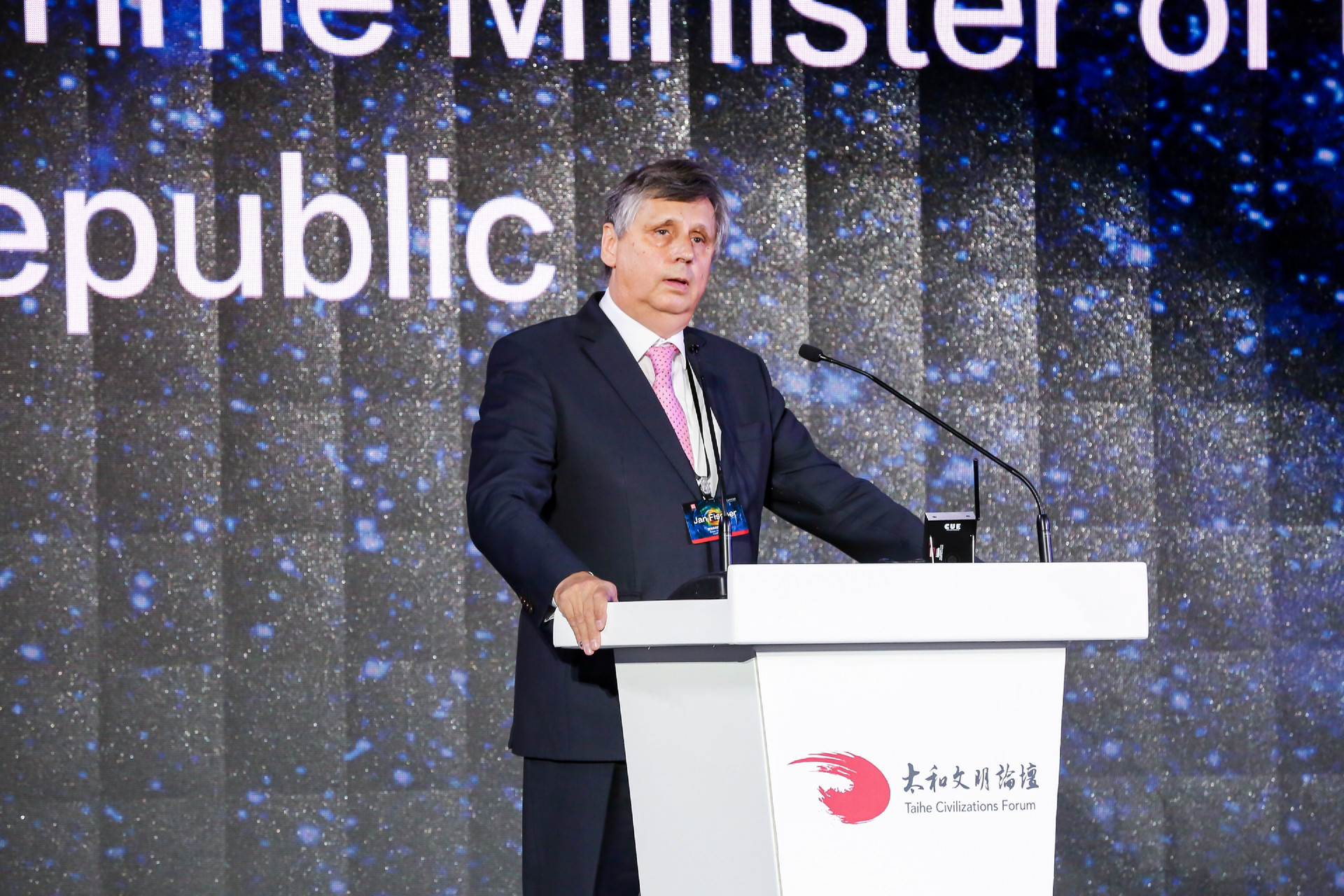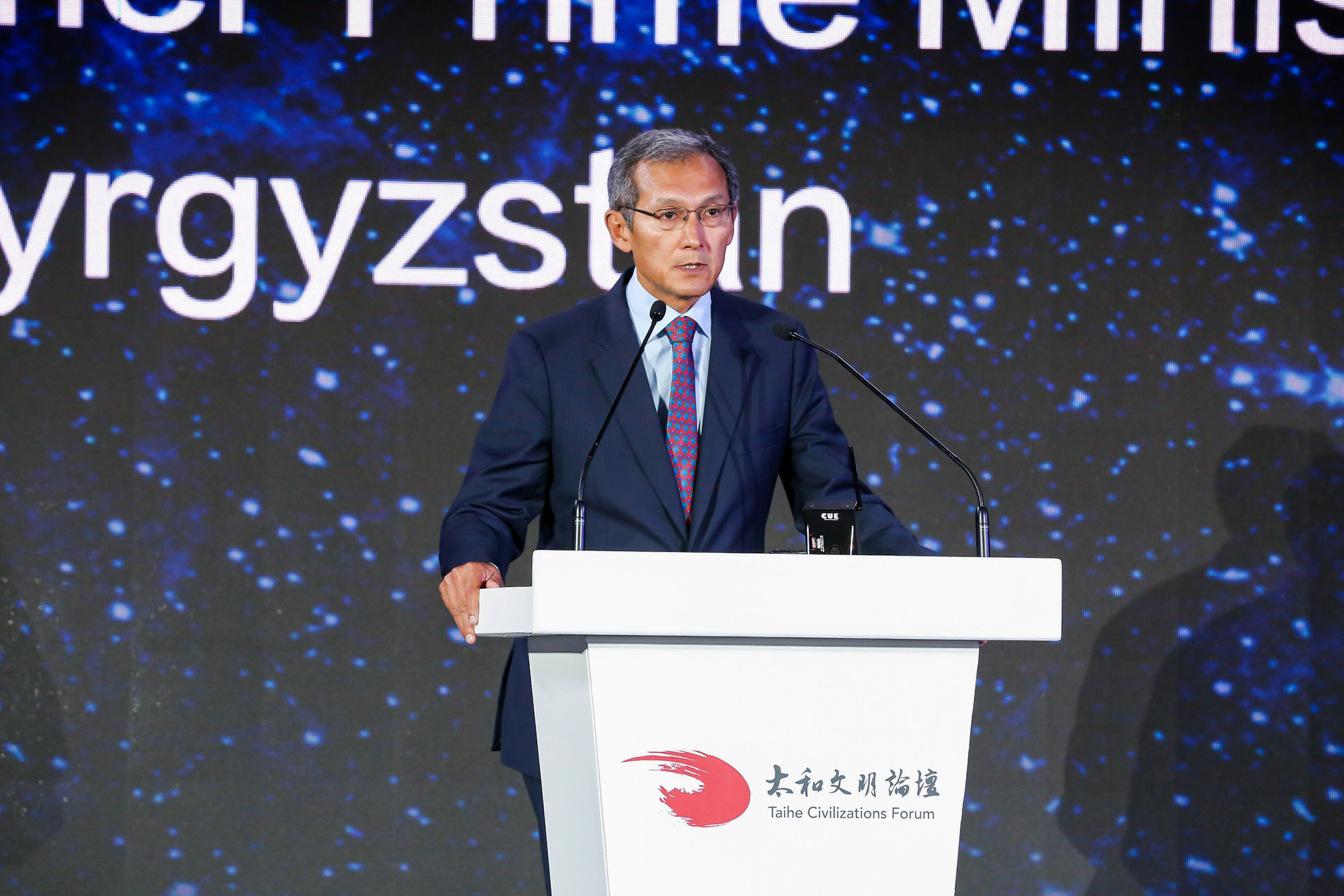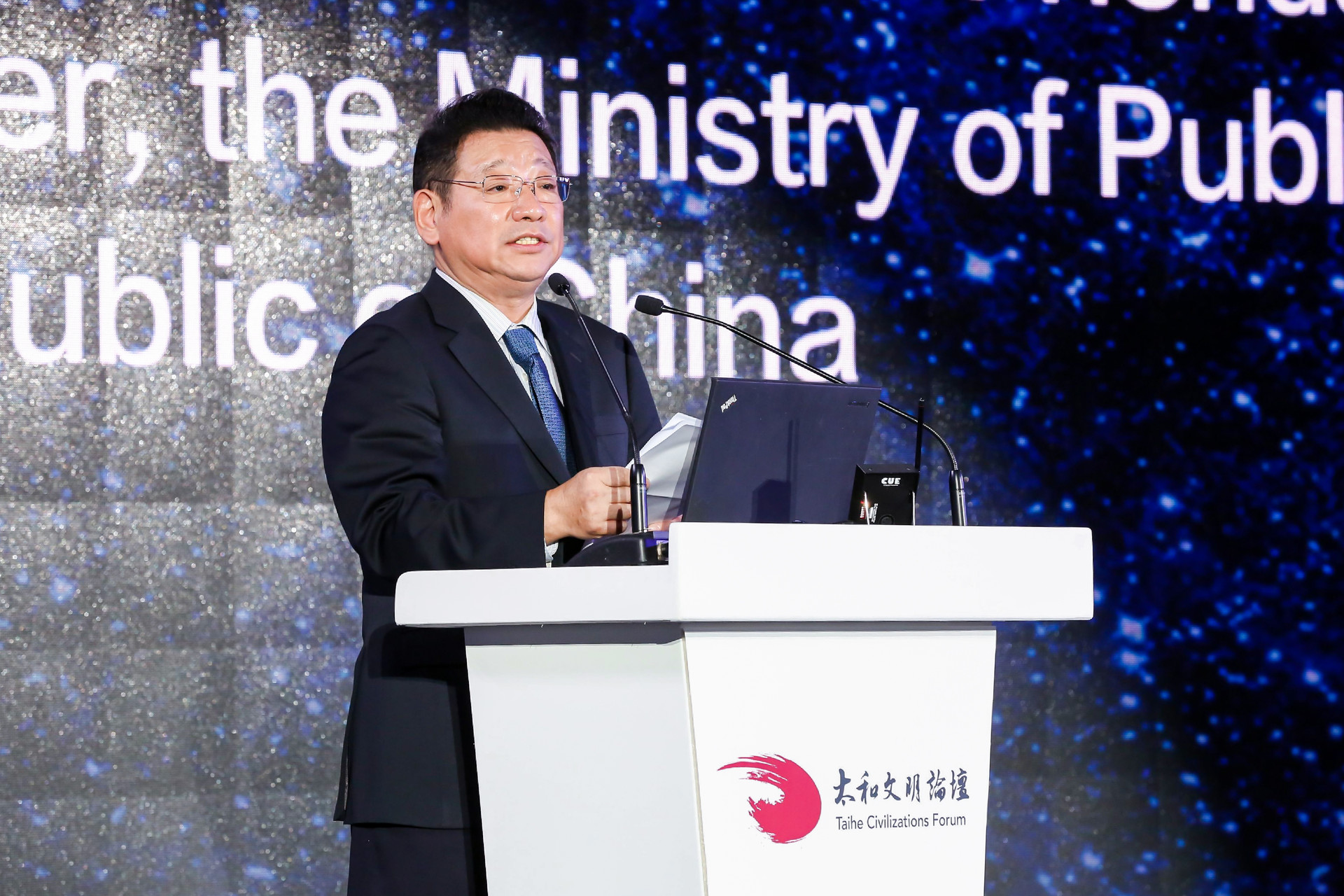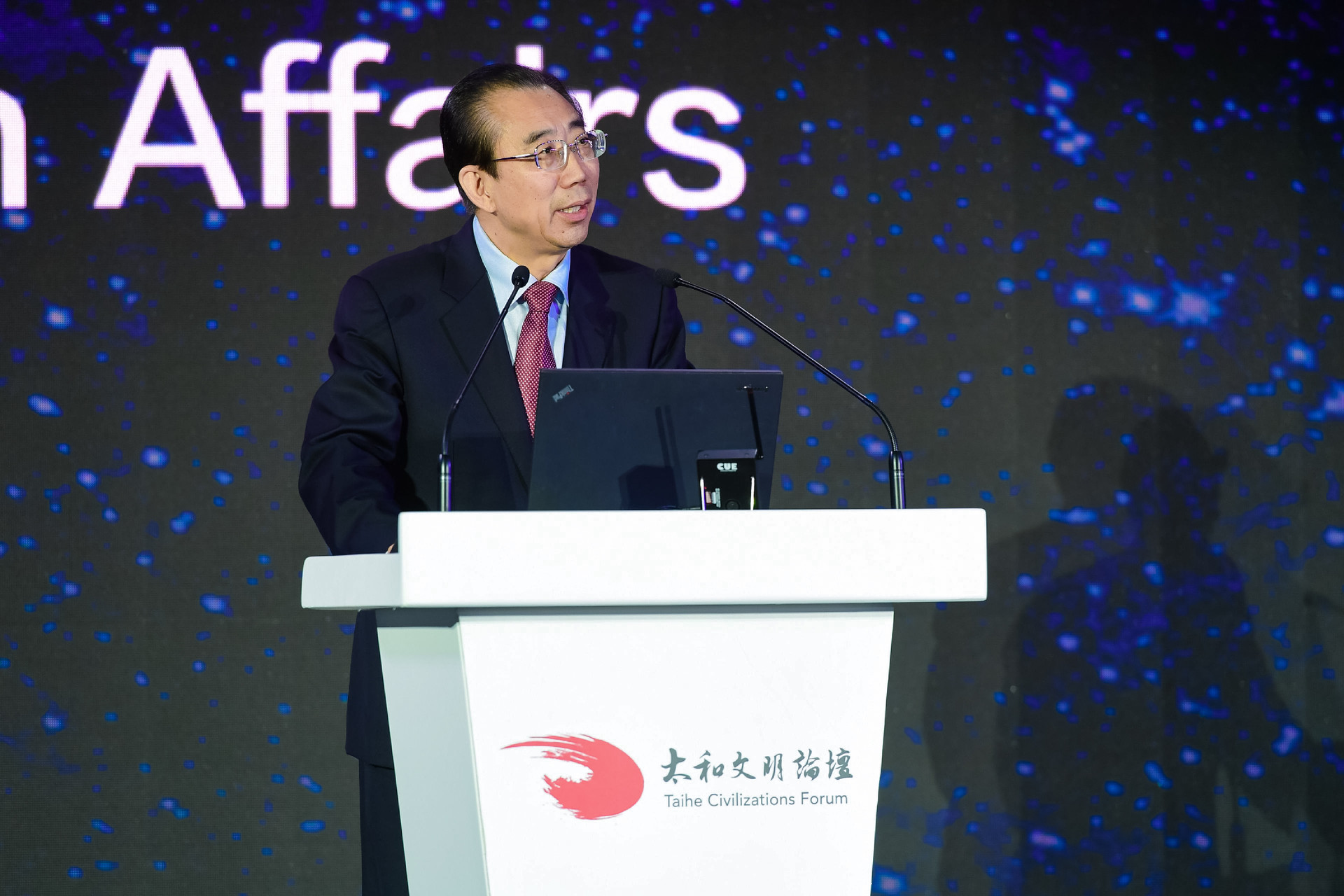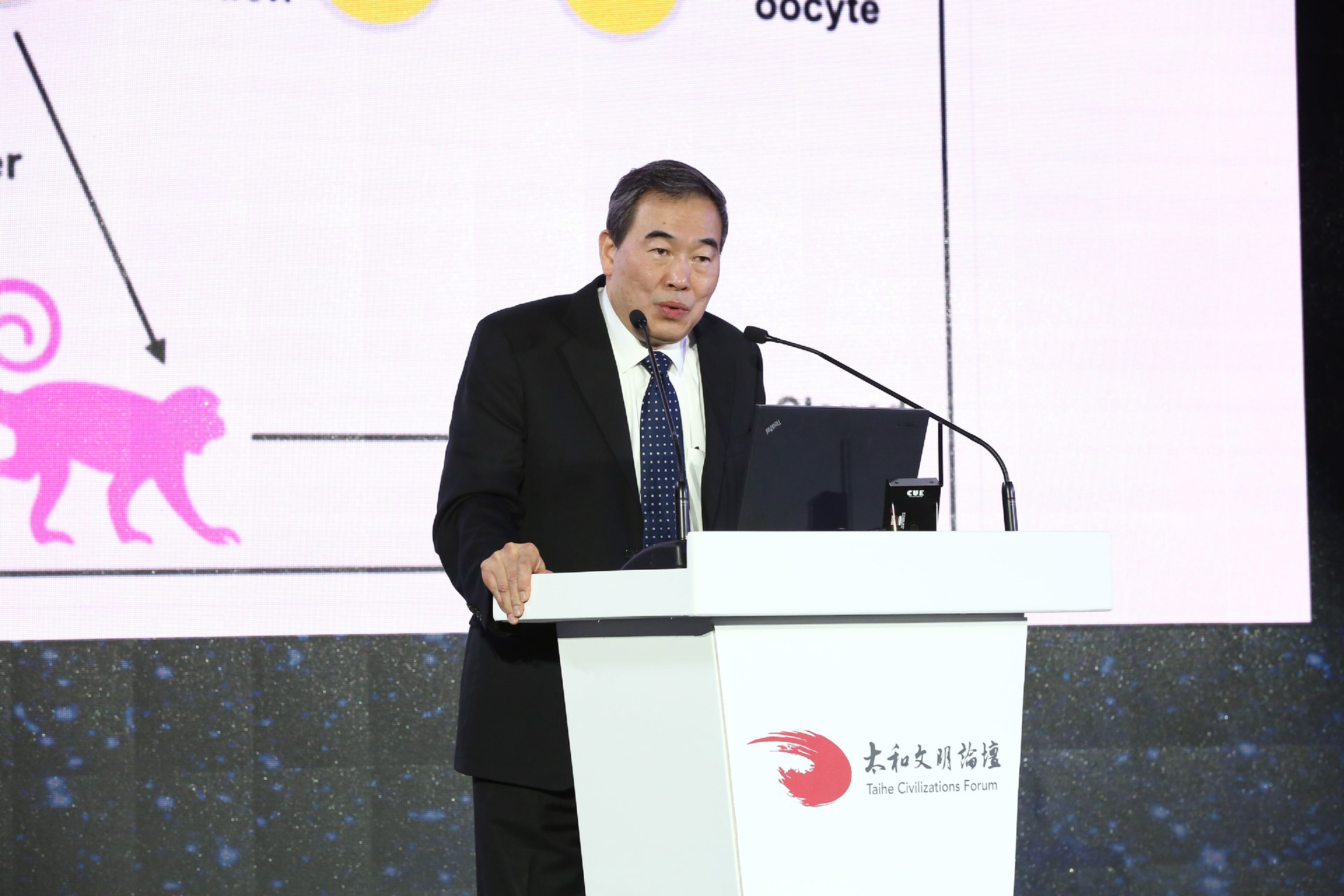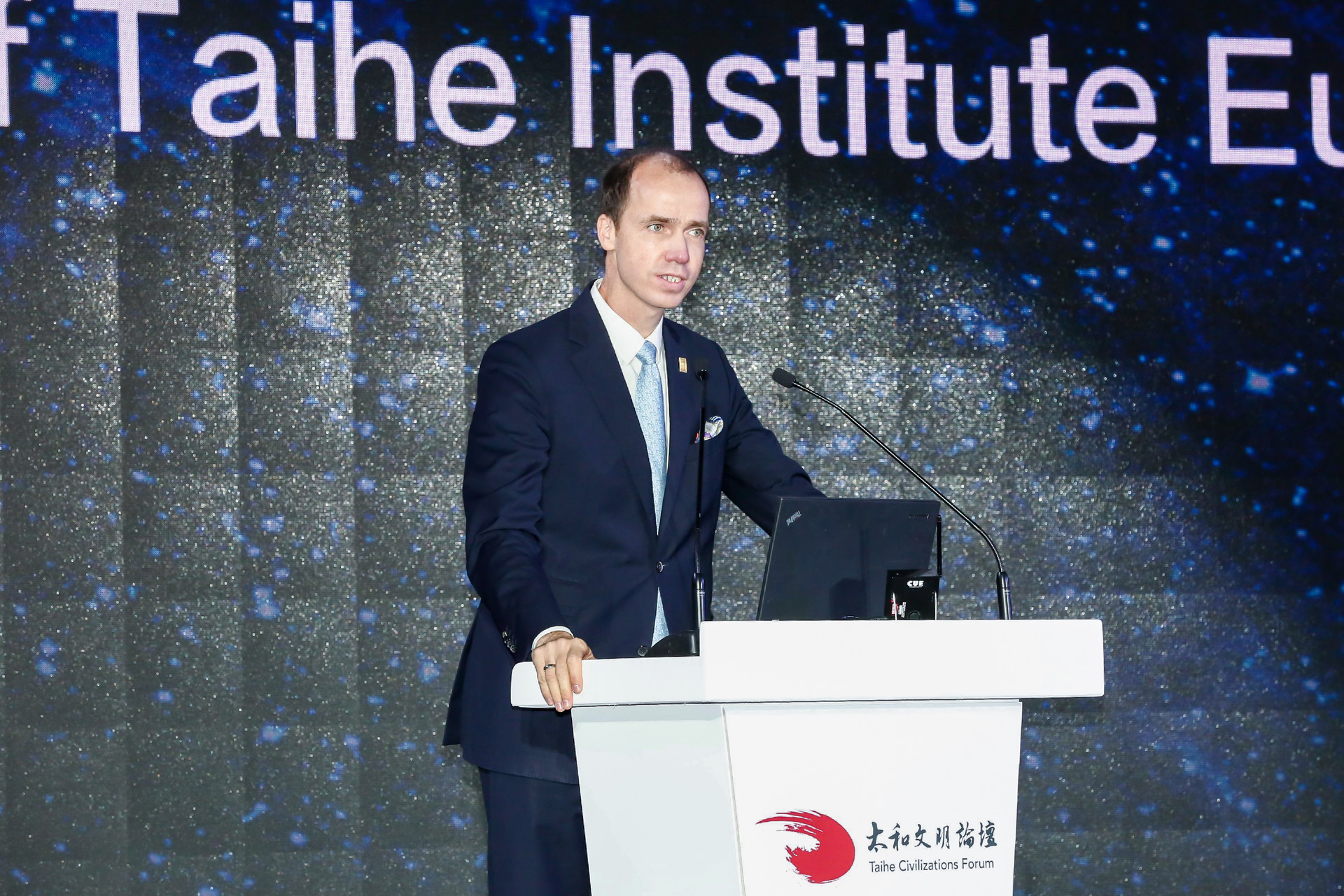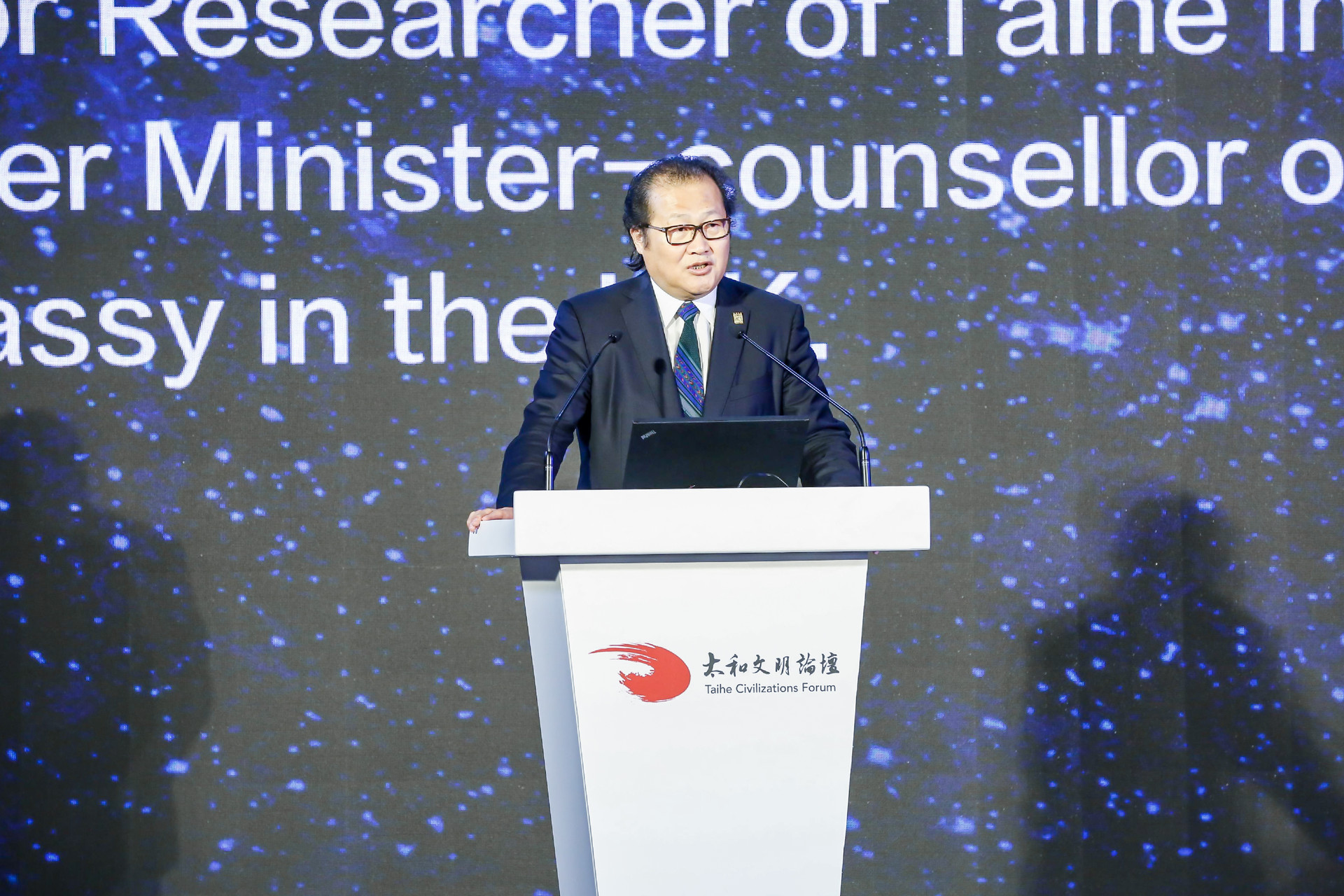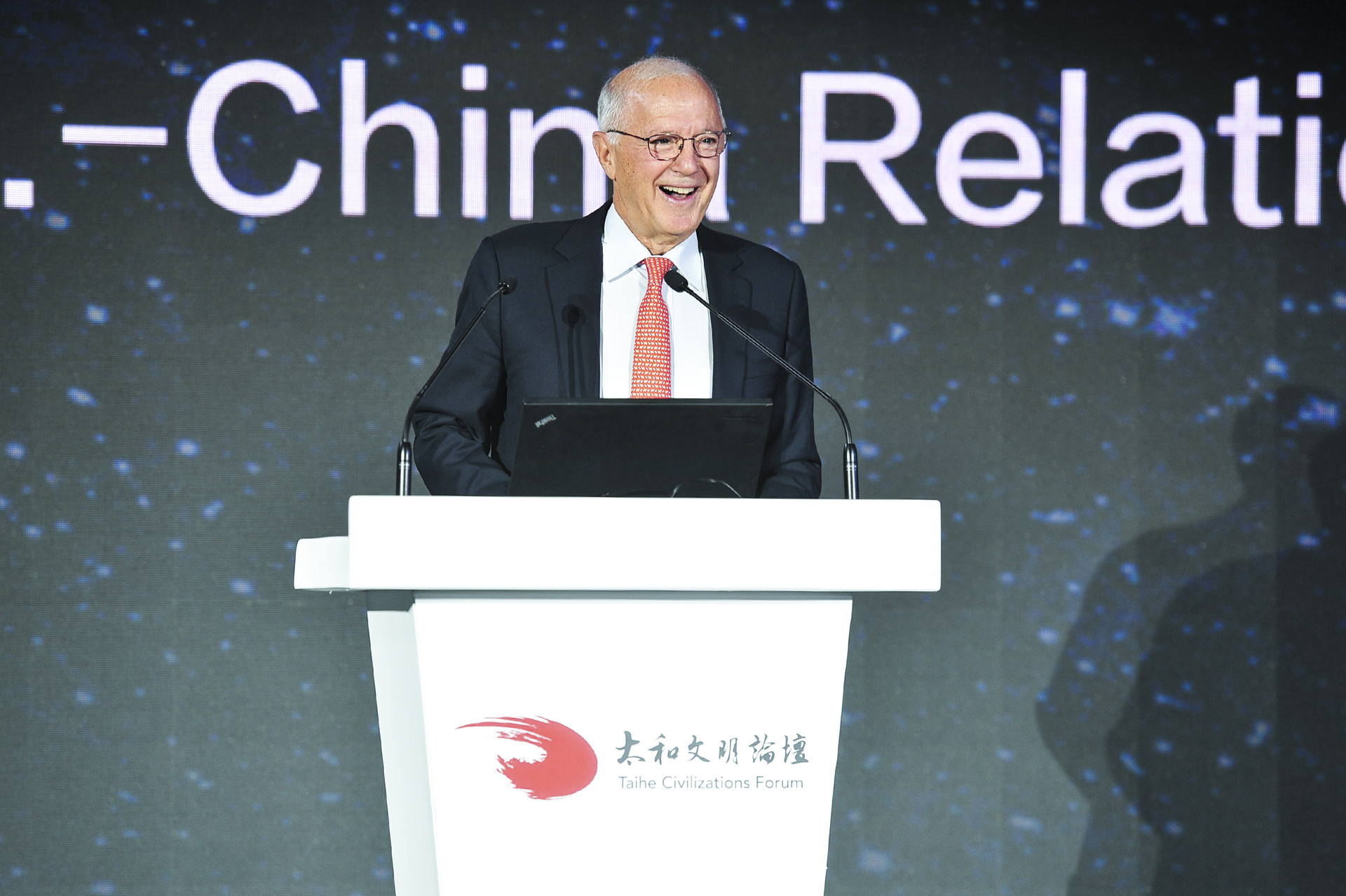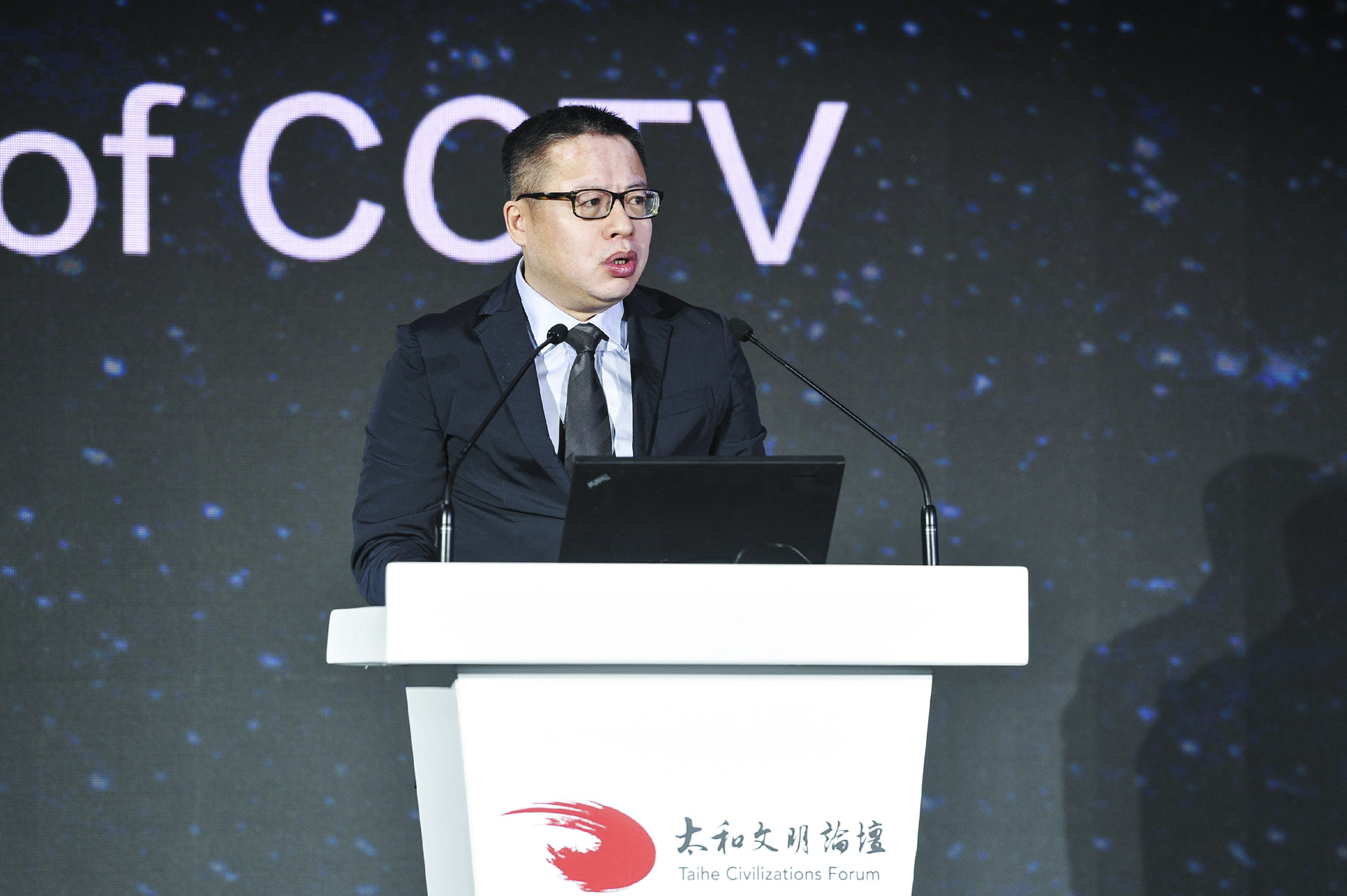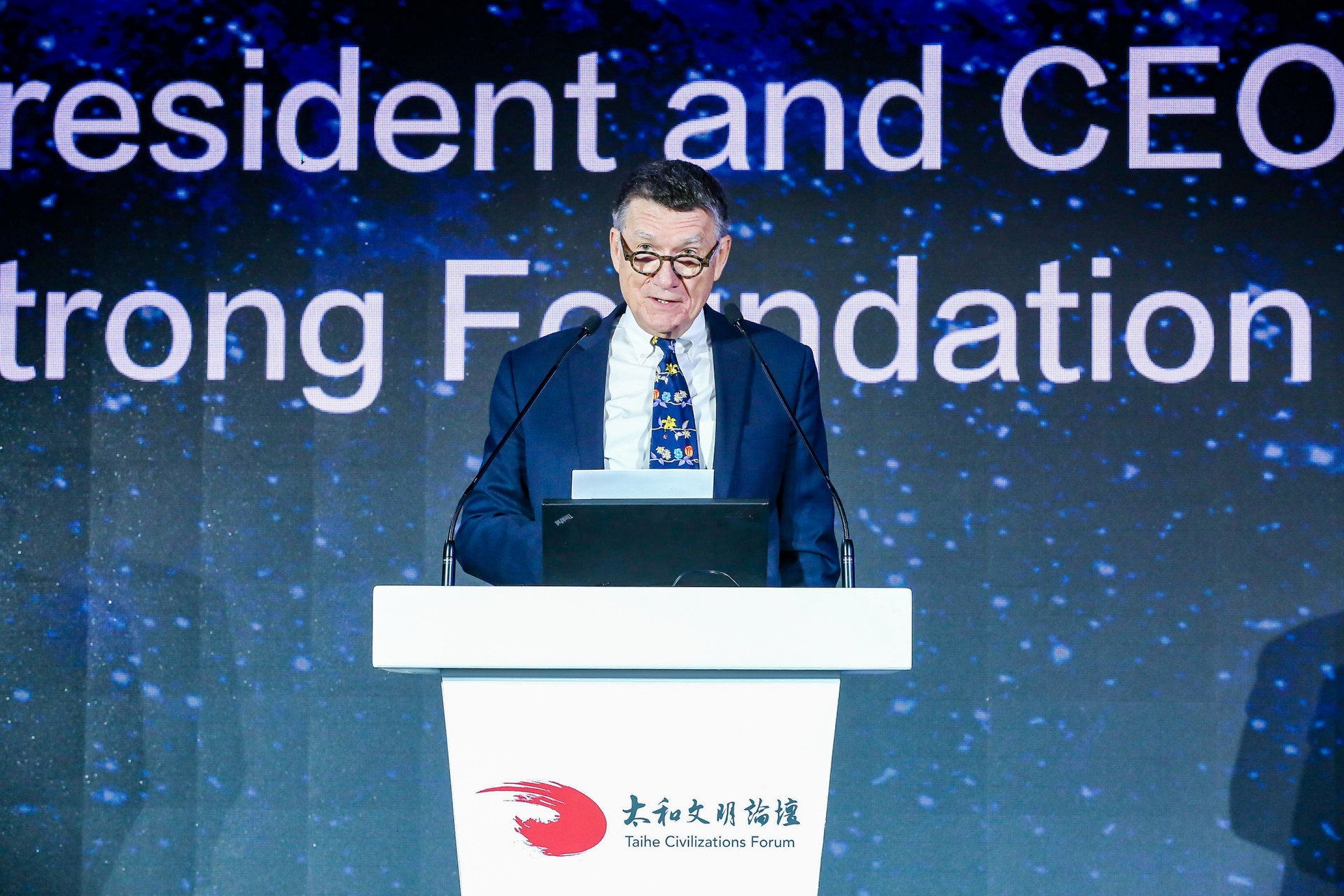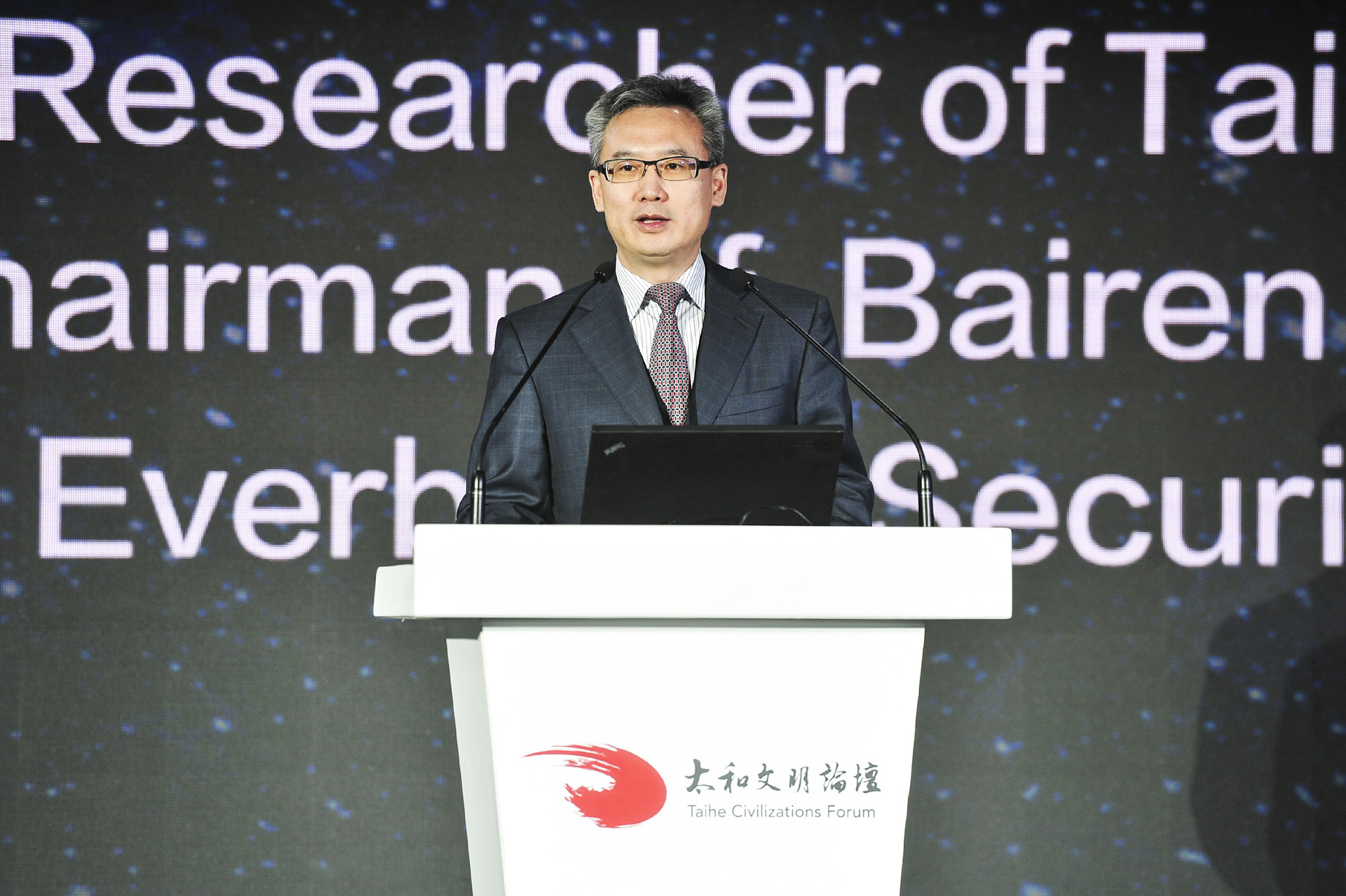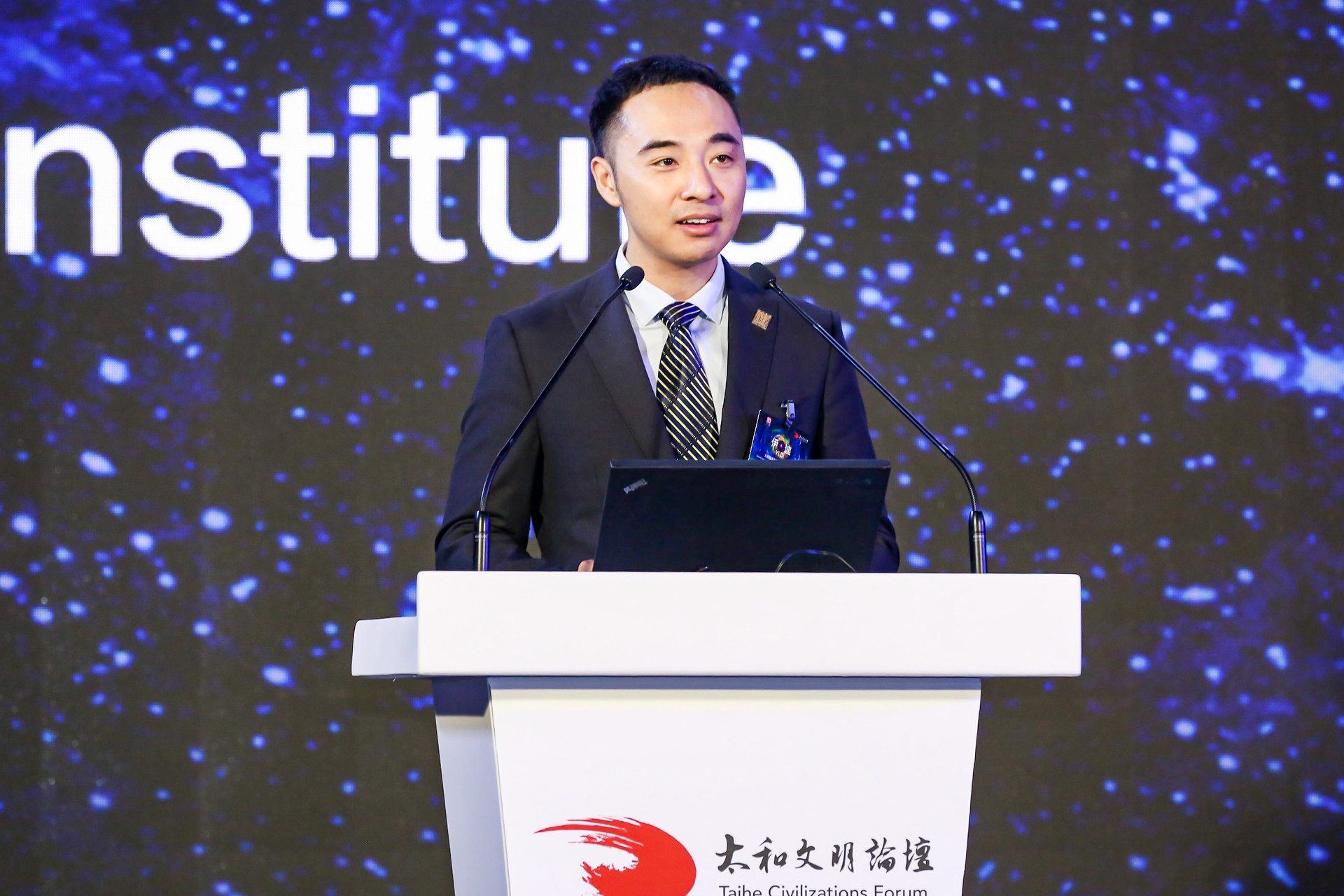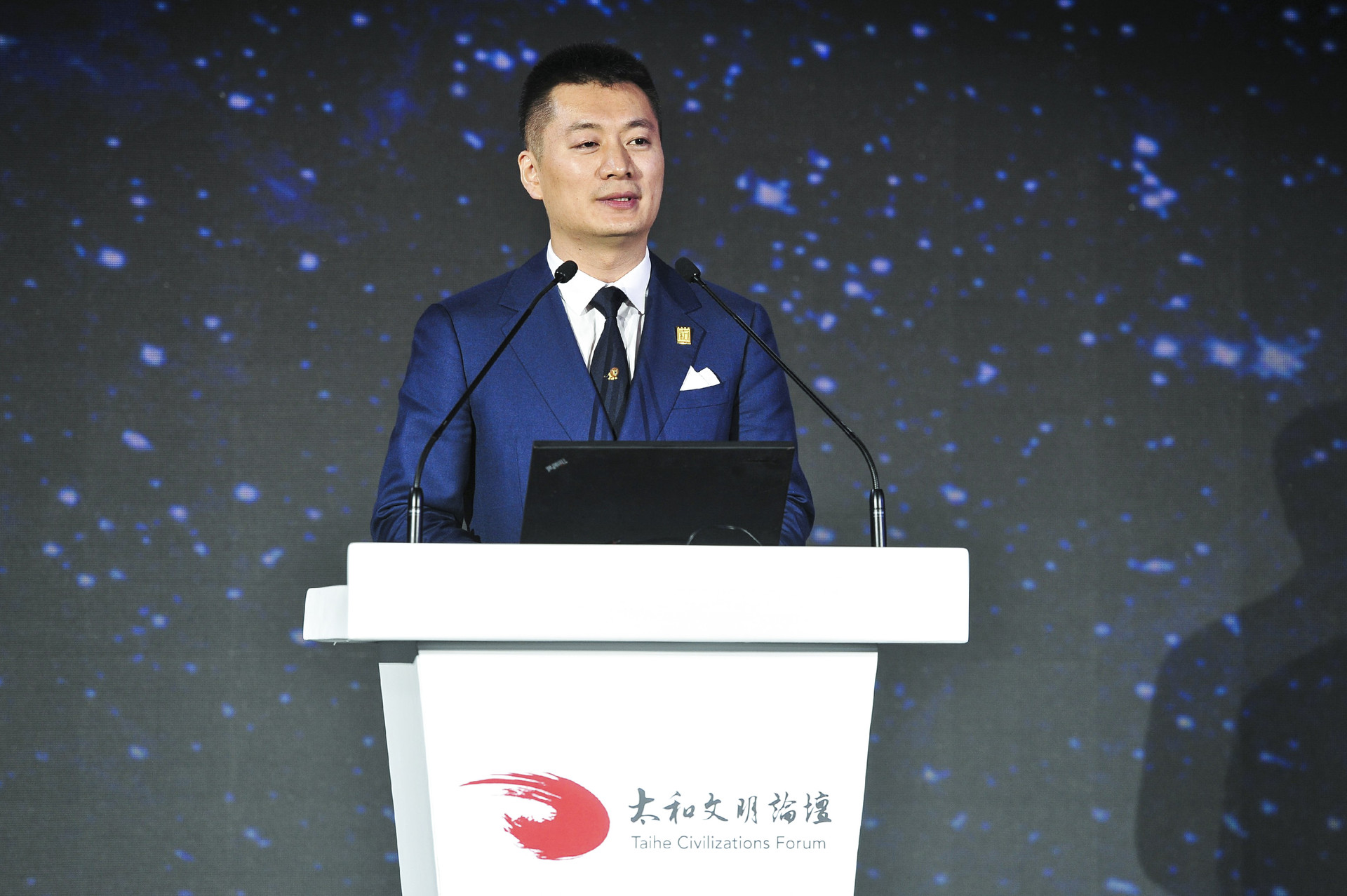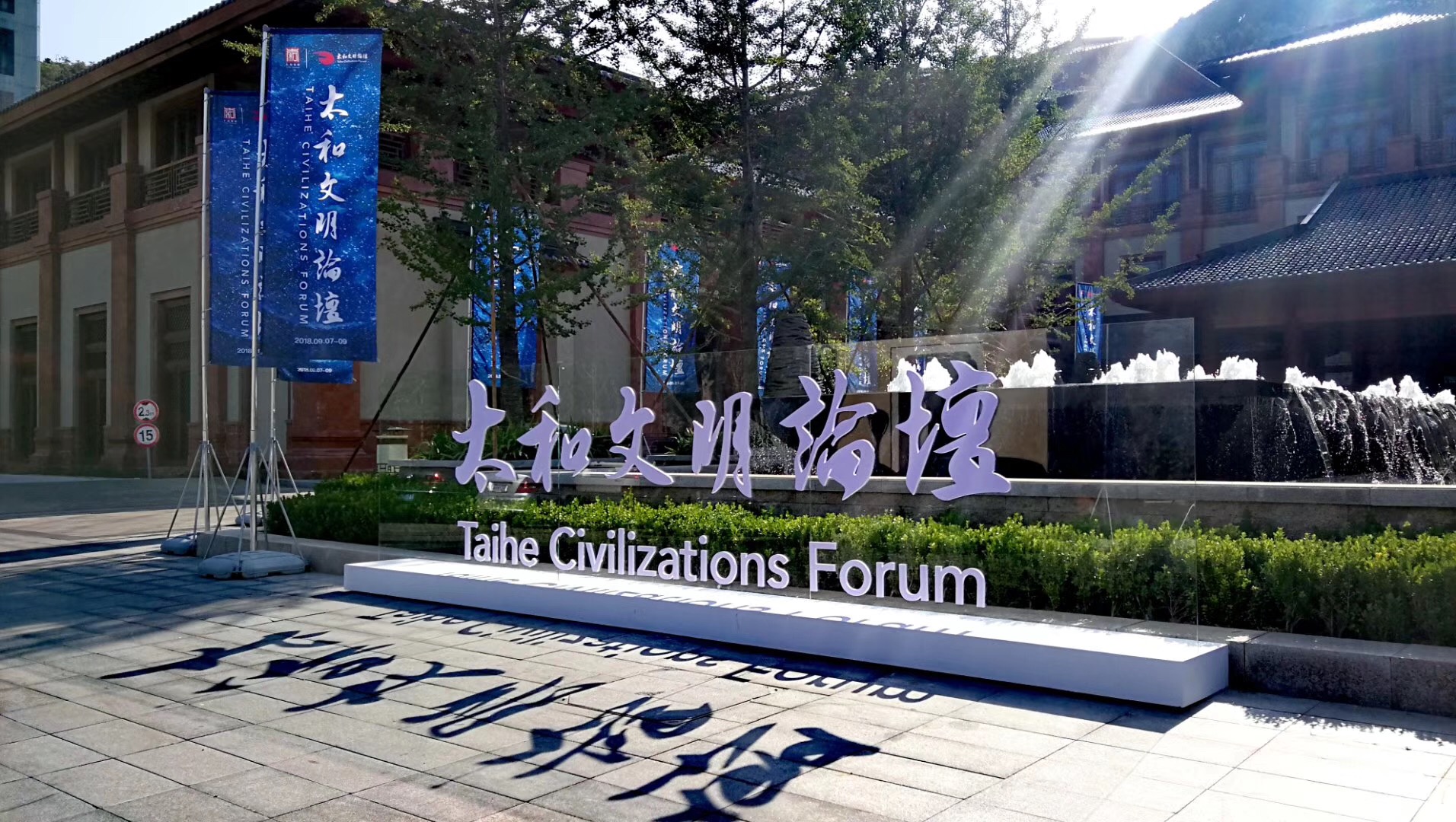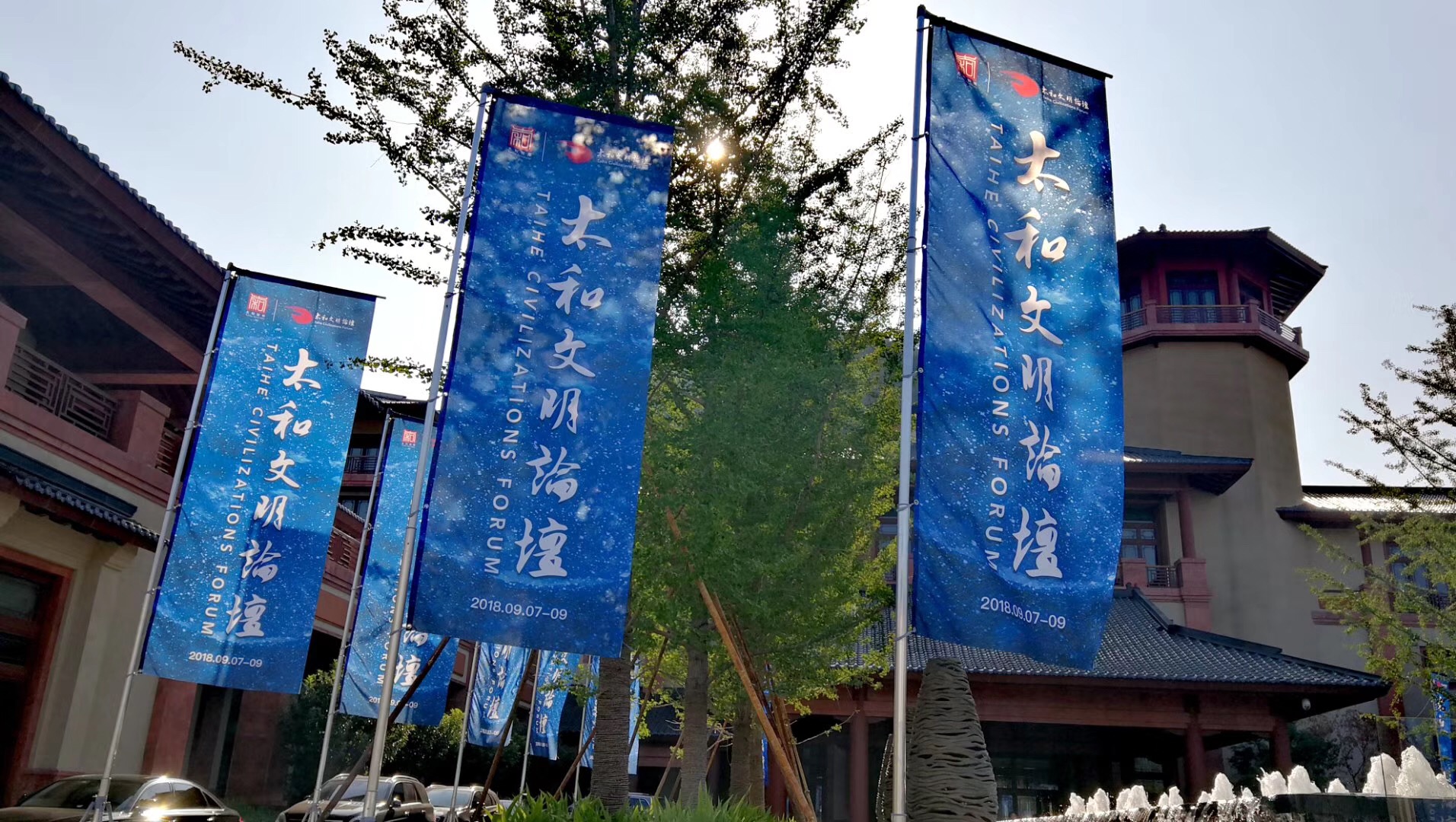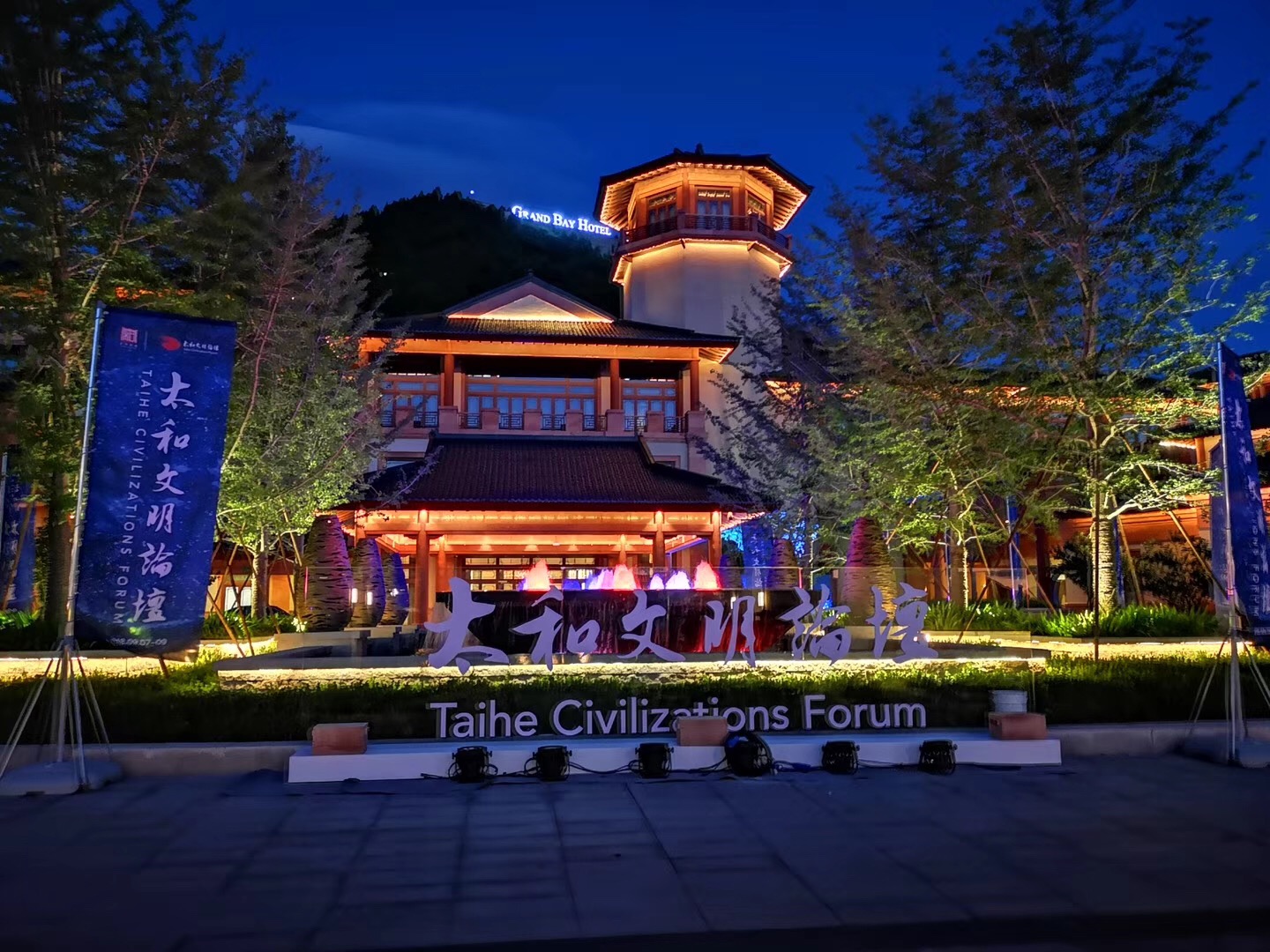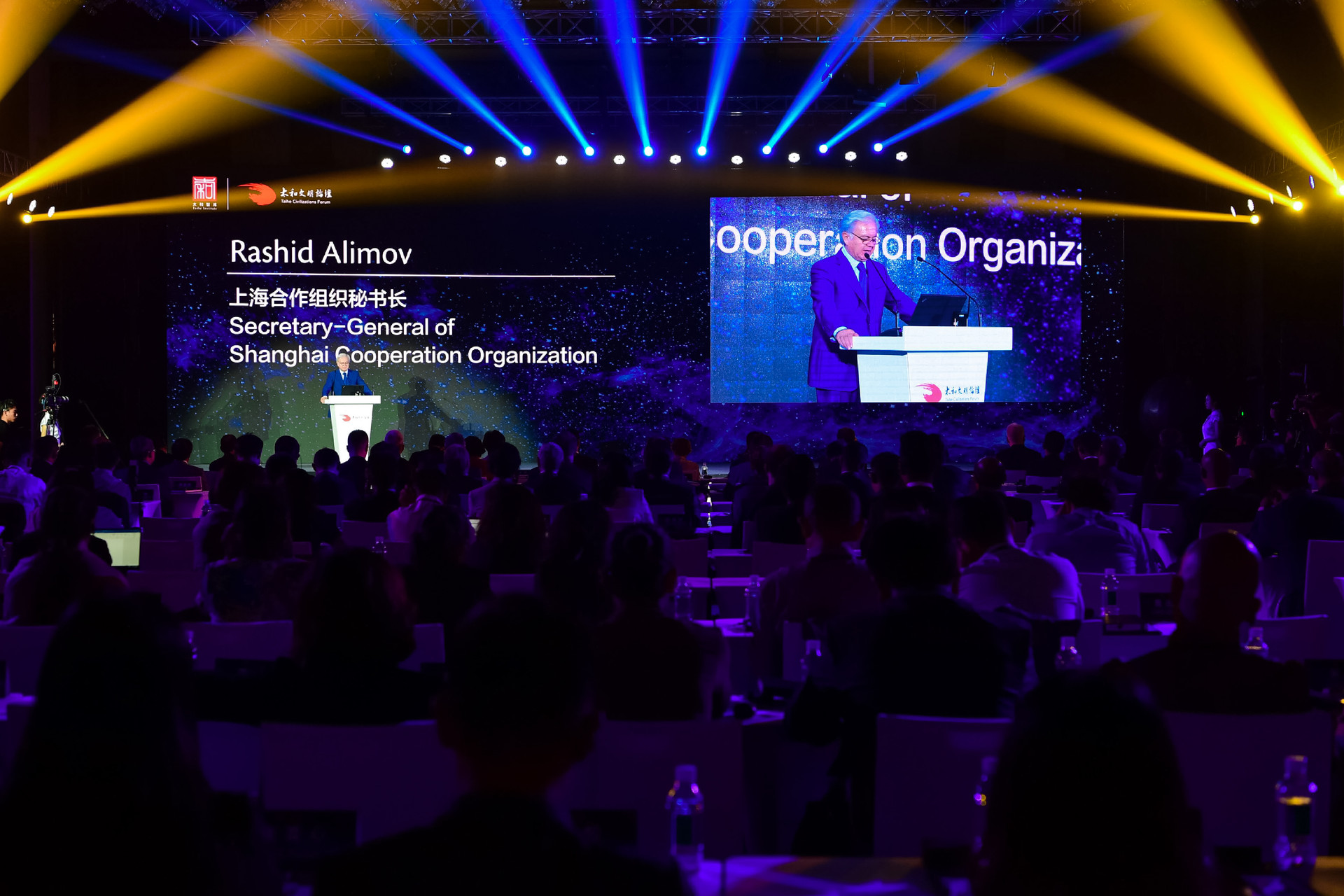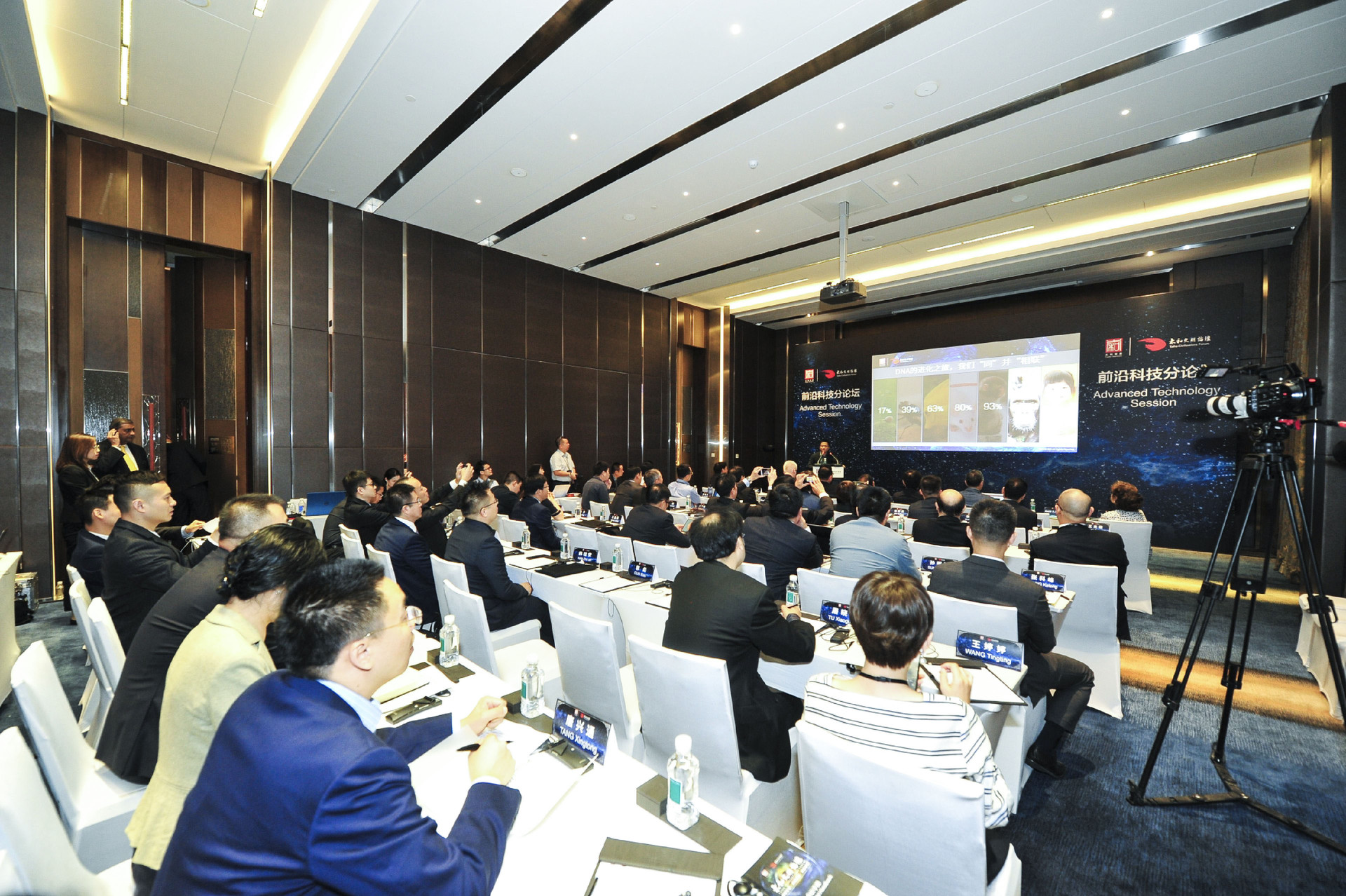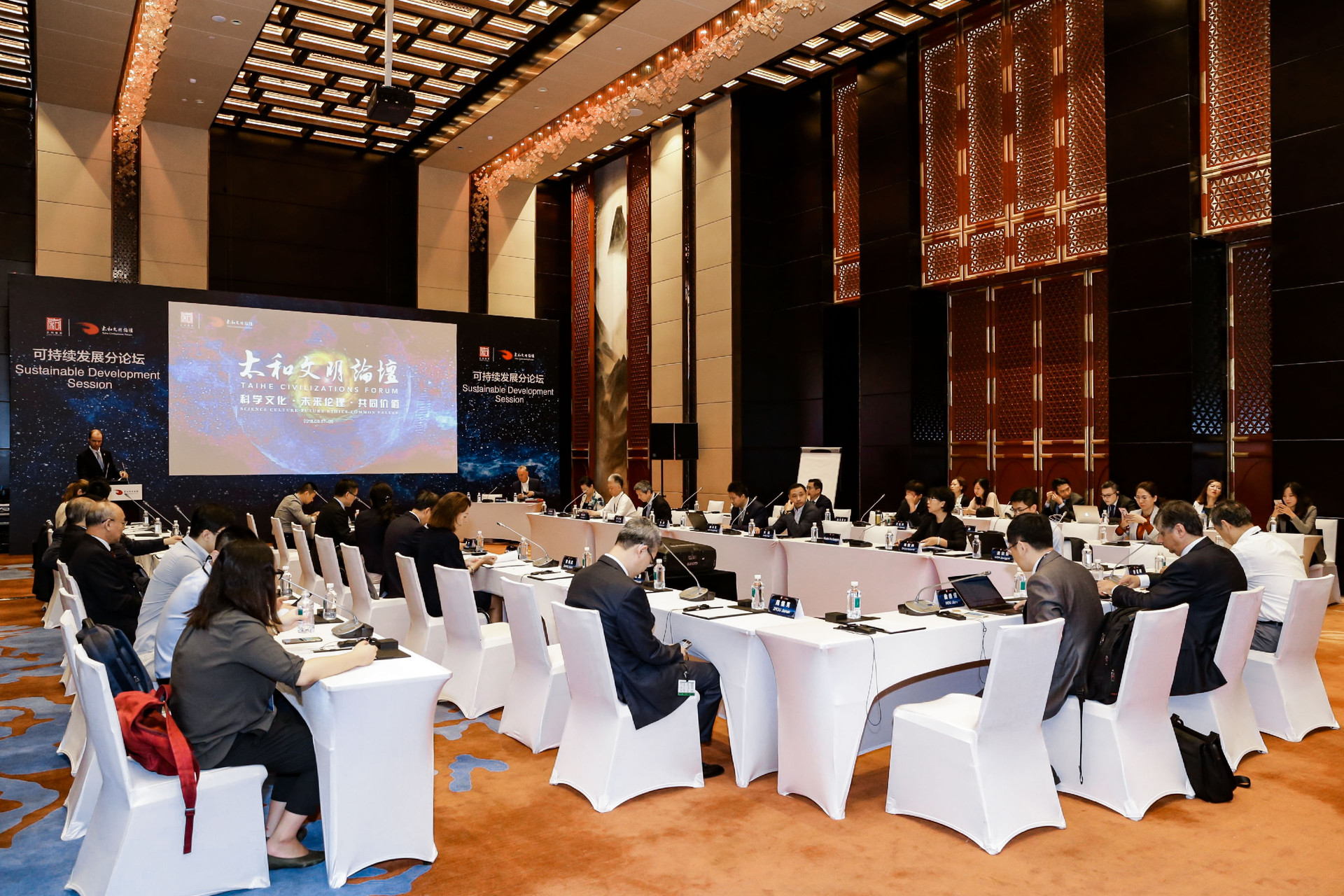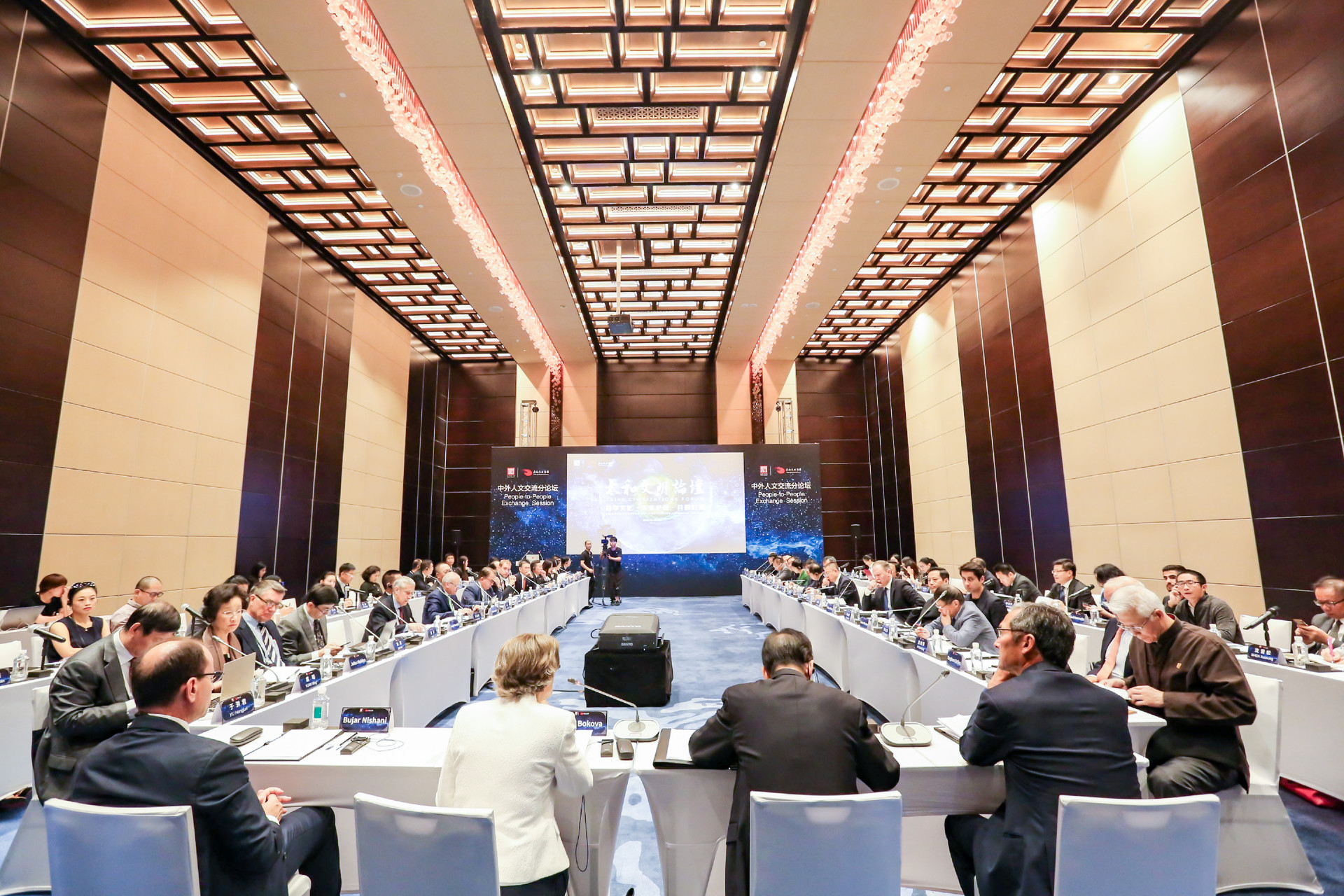It is noted in the I Ching, or Book of Changes, a Chinese ancient classics, that “maintaining Taihe will help develop everything smoothly.” That said, Taihe stands for a supreme harmony. Such harmony can be achieved through coordination and collaboration among all things and the unity of their nature. Taihe symbolizes the ancient wisdom of life which guides people to rediscover the true meaning of their world. The purpose of Taihe is to obtain continuous wisdom and momentum through the creation of common values.
Nowadays, lack of Taihe seriously challenges contemporary human civilizations. Rapid technological development, climate change and environmental degradation, uneven wealth distribution, and geopolitical tensions are some of the significant threats undermining our common values and civilizations. Human civilizations may fall into the abyss without gathering wisdoms and taking actions.
Objectives and Participants
The Taihe Civilizations Forum (TCF) has been initiated to engage global leaders of all fields in supporting "the harmonious development of common values and the advancement of human civilization." The TCF focuses on global and regional challenges, explores root causes, identifies and promotes possible solutions, as well as facilitates communication and impacts creation across borders.
The TCF follows four principles to define the research agenda, guide its work and actions, and effectively contribute to the overall Forum objectives:
• Impartiality: maintaining a diverse, open, also rigorous mindset and aligned actions;
• Globality: fostering international participation and collaboration;
• Foresight: focusing on far-reaching trends and long-term solutions;
• Impact: transforming insights into actions and impacts.
The first Taihe Civilizations Forum was held in Beijing from August 25th to 27th, 2017, focusing on advancing human civilizations and developing common values. Approximately a hundred leading experts from business, governmental, international organizations, and academic sector gathered together to discuss on the topics such as people-to-people exchange, climate change and sustainable development, and artificial intelligence.
Keynote speakers at the opening ceremony of 2017 TCF include:
Boping GU, member of the National Committee of CPPCC, and the Chief Cultural Scholar of Taihe Institute;
Thorsten Jelinek, Director of the European Center of Taihe Institute;
Hailong WU, President of the Chinese People's Institute of Foreign Affairs;
Stephen Orlins, President of the National Committee on U.S.-China Relations;
Hongjun YU, former Vice Minister of the International Liaison Department of the CPC Central Committee;
Cheng Li, Director of the John L. Thornton China Center and Senior Fellow of the Foreign Policy program at Brookings Institution;
Liru CUI, Senior Advisor and Researcher of the China Institute of Contemporary International Relations; and
Yifan DING, former Deputy Director of the Institute of World Development, Development Research Center of the State Council.
The 2018 TCF will be held in Beijing, China from September 7th to 9th, 2018, with the theme of “Science Culture · Future Ethics · Common Value”. The 2018 TCF aspires to tap into the scientific spirit shared by humanity and cultivate the healthy scientific culture, seeking for a harmonious relationship between future technology and ethics in the rapid process of modern scientific and technological development, and aiming to promote the construction and adoption of common values. The 2018 TCF will be comprised of three sessions: People-to-People Exchanges, Advanced Technology and Sustainable Development. The topics to be discussed include:
- New paradigms for people-to-people exchanges
- Exchanges between human civilizations and cohesion of common values
- Cultural exchanges along the Belt and Road and building a community for mankind with a shared future
- Development trends in life science and its integrated application regarding other advanced technologies
- Ethical issues in the future development of life science and its impact on human civilizations
- What role will China play in the field of scientific and technological ethics
- Clean Energy Industry, Clean Production Industry, and Intelligent Environmental Protection Industry
- New Energy Marketization
- International Cooperation and Governance of Clean Energy
| Morning, Friday, September 7th, 2018 | ||||
| Time | Agenda | Location | ||
| 08:30-11:30 | Check-In and Registration | South District | ||
| 12:00-13:30 | Lunch (buffet) | North District, Café for Buffet | ||
| Afternoon, Friday, September 7th, 2018, Opening Ceremony Dressing Code:Business Attire | ||||
| Time | Activity | Speaker | Title | Location |
| 14:00-14:05 | Welcoming Video | 5th Floor, Grand Ballroom | ||
| 14:05-14:30 | Awarding Ceremony | |||
| 14:30-14:40 | Launching Ceremony | |||
| 14:40-14:45 | Opening Remarks | Irina Bokova |
Senior Fellow of Taihe Institute Former Director-General of UNESCO |
|
| 14:45-14:50 | Rashid Alimov | Secretary-General of Shanghai Cooperation Organization | ||
| 14:50-14:55 | Ivo Josipović | Former President of the Republic of Croatia | ||
| 14:55-15:00 | Bujar Nishani | Former President of the Republic of Albania | ||
| 15:00-15:05 | Zlatko Lagumdzija | Former Prime Minister of Bosnia and Herzegovina | ||
| 15:05-15:10 | Jan Fischer | Former Prime Minister of the Czech Republic | ||
| 15:10-15:15 | Dzhoomart Otorbaev | Former Prime Minister of the Republic of Kyrgyzstan | ||
| 15:15-15:20 | CHEN Zhimin | Chairman of China Association for Friendship/Former Vice Minister of the Ministry of Public Security of the People's Republic of China | ||
| 15:20-15:35 | Keynote Speech | WU Hailong | President of Chinese People's Institute of Foreign Affairs | |
| 15:35-15:50 | PU Muming | Director of Institute of Neuroscience, Chinese Academy of Sciences | ||
| 15:50-16:05 | Thorsten Jelinek | Director of Taihe Institute Europe Centre | ||
| 16:30-17:00 | Group Photo | East Side of South District (by the waterfall) | ||
| 17:00-18:30 | Cocktail Party (Business Casual) | 5th Floor, Grand Ballroom | ||
| Media Interview | 2nd Floor, Front Hall | |||
| 19:00-21:00 | Welcome Banquet | 5th Floor, Grand Ballroom | ||
| Morning, Saturday, September 8th, 2018, Parallel Session Dressing Code:Business Attire | ||||
| Time | Agenda | Location | ||
| 06:30-09:00 | Breakfast | North District, Café for Buffet | ||
| 09:00-11:30 | Paralleled Session | People to People Exchange | 5th Floor, Grand Ballroom II | |
| Sustainable Development | 5th Floor, Grand Ballroom III | |||
| Advanced Technology | 2nd Floor, Meeting Room 7 | |||
| 12:00-13:30 | Lunch (buffet) | North District | ||
| Afternoon, Saturday, September 8th, 2018, Parallel Session Dressing Code:Business Attire | ||||
| Time | Agenda | Location | ||
| 13:00-14:00 | Media Interview | |||
| 14:00-15:45 | Paralleled Session | People to People Exchange | 5th Floor, Grand Ballroom II | |
| Sustainable Development | 5th Floor, Grand Ballroom III | |||
| Advanced Technology | 2nd Floor, Meeting Room 7 | |||
| 15:45-16:00 | Tea and Coffee Break | |||
| 16:00-17:30 | Paralleled Session | People to People Exchange | 5th Floor, Grand Ballroom II | |
| Sustainable Development | 5th Floor, Grand Ballroom III | |||
| Advanced Technology | 2nd Floor, Meeting Room 7 | |||
| 17:30-18:30 | Media Interview | |||
| 19:00-21:00 | Banquet | 5th Floor, Grand Ballroom | ||
| Afternoon, Saturday, September 8th, 2018, Parallel Session Dressing Code:Business Attire | ||||
| Time | Activity | Speaker | Title | Location |
| 06:30-09:00 | Breakfast | North District, Café for Buffet | ||
| 09:30-09:38 | Delegate Speeches | JIN Xu |
Senior Researcher of Taihe Institute, Former Minister-counsellor of the Chinese Embassy in the UK |
5th Floor, Grand Ballroom |
| 09:38-09:46 | Stephen Orlins | President of the National Committee on US-China Relations | ||
| 09:46-09:54 | PENG Jianming | Deputy Editor-in-Chief and Senior Editor of CCTV | ||
| 09:54-10:02 | John Holden | President and CEO of US-China Strong Foundation | ||
| 10:02-10:10 | ZHOU Jiannan |
Senior Researcher of Taihe Institute, Vice Chairman of Bairen Benevolent Foundation, CEO of Everbright Securities |
||
| 10:10-10:50 | Panel Discussion | |||
| 10:50-11:05 | Summary report | YI Di | Vice Chairman and Secretary General of Taihe Institute | |
| 11:05-11:10 | Closing Video | |||
| 11:10-11:20 | Closing Speech | PENG Binge | Chairman of Taihe Institute | |
| 12:00-13:30 | Lunch (buffet) | North District, Café for Buffet | ||
| 14:30 | Departure | |||
